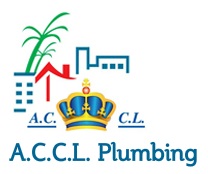As the temperatures drop, frozen pipes become a major concern for homeowners. Frozen pipes can burst, causing costly water damage and disruption to your daily life. In this article, we’ll provide you with tips and strategies for preventing frozen pipes and protecting your home.
Understanding Frozen Pipes
Frozen pipes occur when water inside the pipes freezes due to cold temperatures, causing the pipe to burst. This can happen when:
1. Pipes are exposed to cold temperatures: Pipes in unheated areas like the garage, basement, or crawlspace are more susceptible to freezing.
2. Pipes are poorly insulated: Pipes without adequate insulation can freeze more easily.
3. Water is not moving: Stagnant water in pipes is more likely to freeze than moving water.
Tips for Preventing Frozen Pipes
1. Insulate exposed pipes: Wrap pipes in unheated areas with foam pipe insulation or heat tape.
2. Disconnect and drain hoses: Disconnect and drain hoses from outdoor faucets to prevent water from freezing in the hoses.
3. Seal drafts: Seal any gaps or cracks in walls, floors, and ceilings to prevent cold air from entering and reaching pipes.
4. Keep a slow drip: Let cold water drip from faucets served by exposed pipes to keep water moving and reduce the risk of freezing.
5. Maintain your home’s heating system: Ensure your heating system is in good working condition to keep your home warm and pipes from freezing.
6. Consider smart thermostat: Consider installing a smart thermostat to monitor and control your home’s temperature remotely.
7. Open cabinet doors: Open cabinet doors under sinks to allow warm air to circulate and help prevent pipes from freezing.
Additional Tips
1. Know the location of your main shut-off valve: In case of a burst pipe, knowing the location of your main shut-off valve can help you turn off the water supply quickly.
2. Keep emergency numbers handy: Keep the numbers of a plumber and your insurance company handy in case of a pipe emergency.
3. Consider pipe insulation: Consider installing pipe insulation in unheated areas to protect pipes from freezing.
What to Do if You Have a Frozen Pipe
If you suspect you have a frozen pipe, follow these steps:
1. Turn off the main water supply: Locate your main shut-off valve and turn off the water supply to prevent further damage.
2. Contact a plumber: Contact a professional plumber to thaw the pipe and repair any damage.
3. Monitor for signs of water damage: Keep an eye out for signs of water damage, such as water spots or warping, and address them promptly.
Conclusion
Frozen pipes can be a costly and stressful issue for homeowners. By following these tips and taking preventative measures, you can reduce the risk of frozen pipes and protect your home from water damage. Stay warm and safe this winter!

